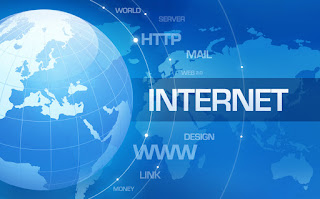Innovation be defined simply as a "new idea, device, or method".
Innovation is a diverse activity. In laboratories and factory floors , universities and coffee shops, or even over a beer after work, people are sussing out better ways to do things. There is no monopoly on creative thought.
However, innovation is often also viewed as the application of better solutions that meet new requirements, unarticulated needs, or existing market needs.
this is business models that are readily available to markets, governments and society. The term "innovation" can be defined as something original and more effective and, as a consequence, new, that "breaks into" the market or society.[ It is related to, but not the same as, invention. Innovation is often manifested via the engineering process. The exnovation is the opposite of innovation.
>>INNOVATION HISTORY>>
In order to develop world-changing innovation, it helps to be aware of that which has come before us. Here’s a brief tour through some of the most important innovations in human history. Let me know in the comments if you think I left out any important ones!
1. Fire (400,000 BCE)
>>> The controlled use of fire was an invention in the early Stone Age, with some of the earliest evidence dating back to hundreds of thousands of years ago. It’s not exactly certain when fire was first being used by humans, but most research puts it somewhere between 200,000 and 600,000 years ago.
2. Language (100,000 BCE)
>>> True semantic, phonetic language was first being used around 100,000 BCE, making it a lot easier to pass on how-to knowledge from generation to generation and speeding the spread of innovation.
3. Trade and Specialization (17,000 BCE )
4. Farming (15,000 BCE )
5. The Wheel (3400 BCE)
6. Money (3000 BCE)
7. Paper (105 common era)
8. The Microscope (1592 )
>>> The microscope was an extremely important invention that has led to the more recent breakthroughs in the understanding of nanotechnology and the understanding of atomic structure.
9. Electricity (1600 Ad)
>>>Going forward to 1600, English scientist William Gilbert coined the term electricity, which originated from the Greek word for ambe
10. The Telephone (1860 Ad )
>>> In 1860, the telephone was invented by Johann Philipp Reis. He was the first to produce a functioning electromagnetic device that could transmit understandable sounds. Sixteen years later, Alexander Graham Bell received the first patent for telephones and invented the first commercially successful telephone.
11. The Radio (1897)
>>> The next great invention was the radio. In 1897, Nikolai Tesla applied for and received the first radio system patent after demonstrating it the year before at the World’s Fair. Radio took advantage of the amazing invisible parts of the electromagnetic spectrum to transmit information through waves
12. The Airplane,( 1903Ad)
>>> In 1903, we saw the invention of the airplane by the Wright brothers, Orville and Wilbur, on the North Carolina coast with the first successful flight of a manned machine occurring on December 17.
13. Television, 1926 Ad.
>>> The creation of television happened in 1926, but there were many inventions that led up to it, including the discovery of the photoconductivity of selenium in 1873 by WilloughbySmith and the 1884 invention of the scanning disk by Paul Nipkow
14. The Internet (1969
)
>>> In 1969 , we saw the creation of the early Internet, called the " ARPANET" which was built by the United States Department of Defense Advanced Research Projects Agency (then called "ARPA" today called " DARPA ") to connect researchers at different locations.
The ARPANET delivered its first message on October 29, 1969 between UCLA and Stanford. The first message was simply the word “log in.” The message crashed the network and only the first two letters, L and O, made it through. By the end of 1969, four computers were connected to the ARPANET .
15. Microprocessors (1971)
>>> In 1971, Ted Hoff of Intel created the microprocessor, which was an integrated circuit. It had all the functions of the computer or a central processing unit (CPU) on it, in a tiny space. The first chip was called the Intel 4004. It had 2300 transistors on it
16. The Mobile Phone (1973 )
>>> In 1973 Motorola launched the first handheld mobile phone. The first prototype weighed 2.5 pounds, offered 30 minutes of talk time, and featured a battery that took ten hours to recharge.
17. The Smartphone (2007 )
>>> On January 9, 2007, the iPhone launched, the first widely available smartphone with multi- touch capabilities (the ability to detect two fingers at once, enabling more complex user interaction such as pinch-to-zoom). The lowly telephone had turned into a cloud-connected smartphone with built-in GPS, compass, voice recorder, camera, maps, and web browser with an app store that allowed the user to download from a selection of millions of specialty applications. The multitouch smartphone paved the way for the tablet and the coming convergence of the laptop/tablet/and smartphone and new hybrids such as cloud-connected glasses and smartwatches
18. The Quantum Computer (2011)
>>> last step in our brief history of innovation is the quantum computer. In 2011, the first quantum computer was brought to market by D-wave. It was called the Dwave One. Quantum computers use superposition and entanglement to solve some computing problems thousands of times faster than traditional computers. In May 2013 Google announced it was purchasing a D-wave Two quantum computer to be hosted at the Quantum Artificial Research Lab at the NASA Ames Research Center in Mountain View, CA.














































Comments
Post a Comment